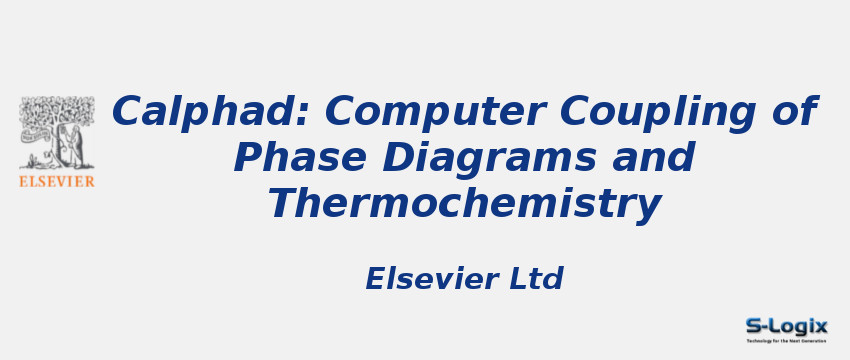Calphad: Computer Coupling of Phase Diagrams and Thermochemistry is a peer-reviewed journal that focuses on the development and application of computational methods in phase diagrams, thermodynamics, and materials science. The journal provides a platform for researchers, engineers, and scientists to publish original research, review articles, and technical advancements related to the calculation and prediction of phase equilibria and thermochemical properties.
Objective:
The journal aims to advance the understanding and utilization of computational techniques in phase diagrams and thermochemistry. It encourages contributions that enhance the accuracy, efficiency, and applicability of computational methods for predicting material properties, phase transformations, and alloy behavior.
Focus Areas:
Topics covered in Calphad: Computer Coupling of Phase Diagrams and Thermochemistry include, but are not limited to:
Computational thermodynamics
Phase equilibria and phase diagrams
Thermodynamic modeling and databases
Materials properties prediction
CALPHAD (Calculation of Phase Diagrams) methodology
Thermochemical calculations
Alloy design and optimization
Applications in metallurgy, ceramics, alloys, and materials science
Experimental validation of computational predictions
Impact:
The journal significantly contributes to the field by providing insights into state-of-the-art computational methods and their applications in materials science. It influences the development of advanced materials with tailored properties, improved alloy design, and optimized processing conditions.
Significance:
Calphad: Computer Coupling of Phase Diagrams and Thermochemistry is significant for researchers and practitioners interested in computational thermodynamics and phase equilibria. By promoting interdisciplinary collaboration and the exchange of knowledge, the journal supports the development of more efficient and reliable computational tools for materials design and processing.
Journal Home: Journal Homepage
Editor-in-Chief: Z.-K. Liu
scope:
The journal covers a wide range of topics including:
Phase Diagrams: Development and refinement of phase diagrams for multicomponent systems, including theoretical models and experimental validations.
Thermochemical Properties: Computational methods and models for predicting thermodynamic properties of materials, including entropy, enthalpy, and free energy.
First-Principles Calculations: Theoretical approaches and quantum mechanical methods for calculating material properties from fundamental physical principles.
Experimental Measurements: Techniques and methodologies for experimental determination of thermochemical data, phase equilibria, and kinetics.
Phase Transformations: Study and characterization of phase transformations in materials under different thermodynamic conditions.
Process and Materials Design: Application of CALPHAD models in the design and optimization of industrial processes, materials synthesis, and alloy development.
Database Development: Compilation, critical assessment, and management of thermodynamic and phase equilibrium data into self-consistent databases.
Applications: Practical applications of computational thermodynamics in industries such as metallurgy, ceramics, aerospace, and energy.
Annual Conference: Highlights from the annual CALPHAD conference, showcasing the latest advancements, methodologies, and applications in the field.
Print ISSN: 03645916
Electronic ISSN:
Abstracting and Indexing: Scopus, Science Citation Index Expanded
Imapct Factor 2023: 2.40
Subject Area and Category: Chemical Engineering, Chemical Engineering (miscellaneous), Chemistry, Chemistry (miscellaneous), Computer Science, Computer Science Applications
Publication Frequency:
H Index: 73
Q1:
Q2: Chemical Engineering (miscellaneous)
Q3:
Q4:
Cite Score: 4
SNIP: 0.958
Journal Rank(SJR): 0.612
Guidelines for Authors: Calphad: Computer Coupling of Phase Diagrams and Thermochemistry Author Guidelines
Publisher: Elsevier Ltd.
Country: United Kingdom
